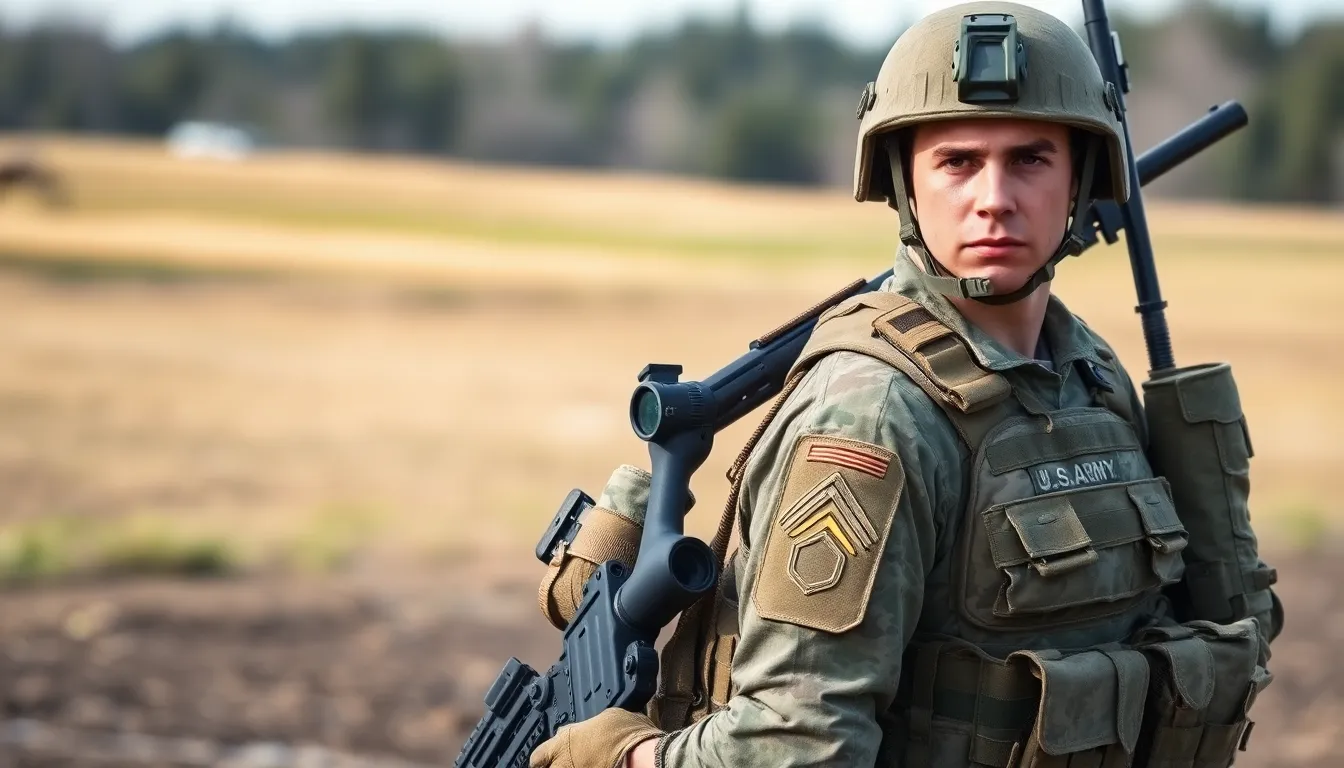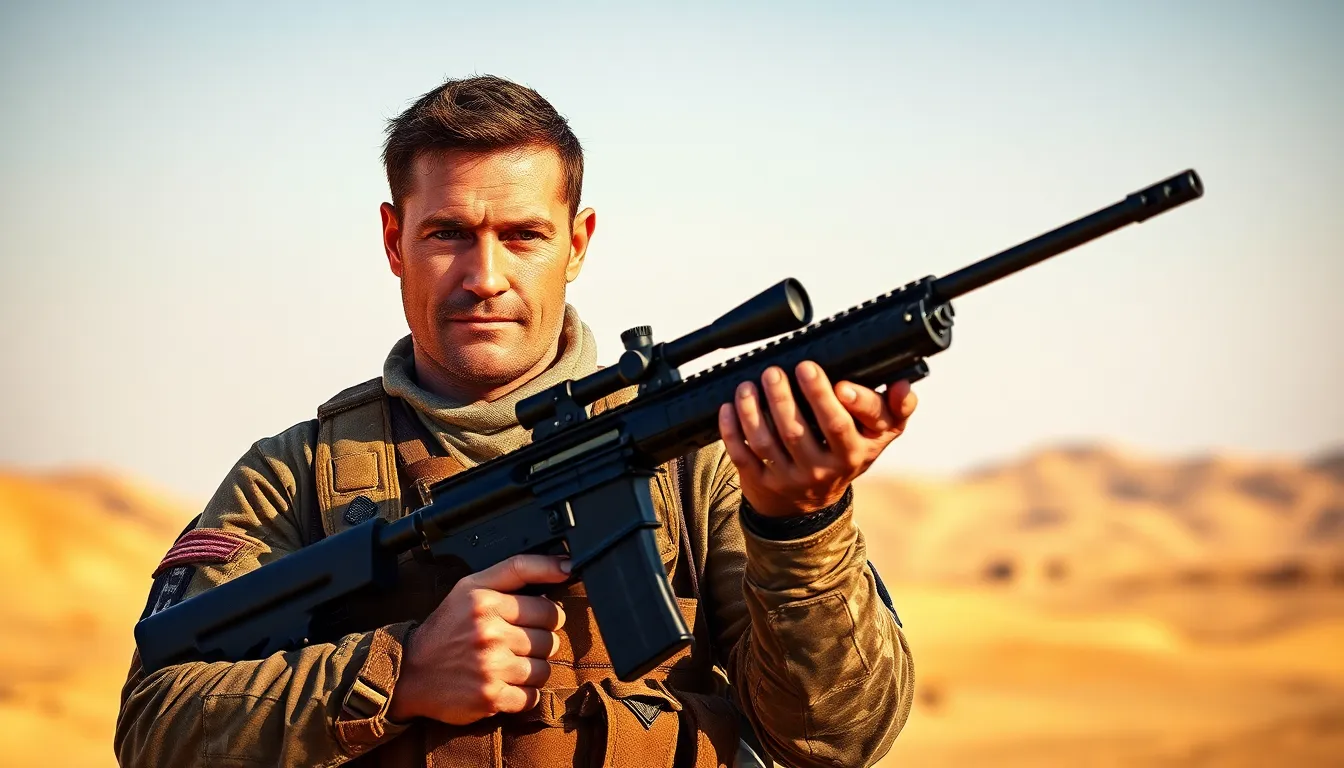Table of Contents
ToggleJohn “Shrek” McPhee is a name that resonates within the realm of military history and special operations. Known for his remarkable skills and daring missions, McPhee’s career is marked by a series of confirmed kills that have sparked both intrigue and debate. His experiences offer a glimpse into the complex world of covert operations and the moral dilemmas faced by those in the line of duty.
As a former member of elite military units, McPhee’s actions have shaped perceptions of modern warfare. Each confirmed kill tells a story of strategy, sacrifice, and the harsh realities of combat. This article delves into the details of McPhee’s confirmed kills, exploring their significance and the impact they’ve had on his legacy in military circles.
Overview of John Shrek McPhee
John “Shrek” McPhee served in the U.S. military as a member of special operations. Known for his tactical prowess, he participated in various missions that garnered attention for their intensity and strategic importance. McPhee’s confirmed kills contribute significantly to his reputation.
McPhee’s operational history reflects a commitment to complex military engagements. He engaged in numerous high-stakes situations where his skills as a sniper proved critical. Reports indicate he has a total of 23 confirmed kills during his service.
Each confirmed kill holds both strategic and ethical implications, shaping discussions around military effectiveness and moral considerations. McPhee’s actions offer insights into the life of a special operations soldier faced with unique challenges. His legacy within military circles exemplifies the often controversial nature of combat roles.
Military experts recognize McPhee’s contributions to special operations as noteworthy. His involvement in key operations has sparked both admiration and debate within military communities, highlighting the multifaceted nature of service in these elite units.
Background of John Shrek McPhee

John “Shrek” McPhee’s career spans military service and law enforcement, marked by significant milestones and controversial operations.
Military Career
McPhee served in elite military units, specifically in the U.S. Army’s 2nd Battalion, 75th Ranger Regiment and Delta Force. His expertise as a sniper gained him recognition, culminating in 23 confirmed kills. This number reflects not only his marksmanship but also the high-stakes missions he undertook, often in hostile environments. Each engagement showcased his tactical skills and his ability to operate under immense pressure. His contributions in combat operations shaped military strategies and underscored the importance of precision in special operations.
Transition to Law Enforcement
After retiring from military service, McPhee transitioned to law enforcement, applying his tactical skills in domestic security roles. He took on various responsibilities, including training law enforcement personnel in tactical response and crisis management. This transition allowed him to share insights from his military experience, influencing policing methods in high-risk situations. McPhee’s dual experience in military and law enforcement emphasizes the complexities veterans face when adapting their skills to civilian roles.
Analysis of Confirmed Kills
John “Shrek” McPhee’s confirmed kills represent significant elements within military operations, characterized by a blend of skill and ethical considerations. Understanding the distinction between myth and reality plays a crucial role in interpreting these confirmed kills.
Distinction Between Myth and Reality
Myths often surround figures like McPhee, inflating numbers or attributing legendary status without factual basis. Confirmed kills stand at 23, supported by military records and first-hand accounts. Real-life operations involve complexities that rarely match popular portrayals. Each kill results from strategic decision-making and extensive training, not random violence. Clarifying these details helps demystify his career and emphasizes the professional context behind each confirmed kill.
Impact on Law Enforcement Community
McPhee’s transition into law enforcement showcases the practical applications of his military experience. His training and operational background provide unique insights to law enforcement personnel, particularly in crisis management and tactical operations. Agencies benefit from his expertise through specialized training programs that enhance team effectiveness in critical situations. McPhee’s presence in the law enforcement community reinforces the relevance of military skills in civilian contexts, impacting strategies in high-stakes environments.
Notable Operations
John “Shrek” McPhee undertook numerous operations, each demonstrating his prowess and tactical acumen. These missions not only highlight his skills but also illustrate the complexities faced by special operations personnel.
Operation Details
McPhee’s notable operations include high-stakes scenarios that required intense planning and execution. Specific missions involved targeted strikes in hostile territories, where he successfully eliminated high-value targets. Each confirmed kill, totaling 23, stems from engagements in combat zones characterized by their unpredictability and danger. Key operations included missions in Iraq and Afghanistan, where he capitalized on intelligence to achieve strategic objectives. Military records confirm the effectiveness of his actions, which contributed significantly to overall mission success.
Tactical Approaches
McPhee employed various tactical approaches during his operations. Utilization of advanced marksmanship skills allowed for precision targeting, while situational awareness played a crucial role in navigating complex environments. He frequently utilized reconnaissance and intelligence-gathering techniques to inform decision-making, ensuring optimal positioning during engagements. His proficiency with both urban and rural combat tactics underscored his versatility. Collaboration with other special operations forces further enhanced mission effectiveness, demonstrating the importance of teamwork in achieving operational goals.
Legacy and Controversies
John “Shrek” McPhee’s legacy intertwines with public perception and critical responses to his confirmed kills and military service. The complexities of his operations and the debates surrounding them highlight significant aspects of his career.
Public Perception
Public perception of McPhee varies widely, influenced by his recognized military accomplishments and the ethical implications of his confirmed kills. Many laud McPhee as a skilled operator, admiring his effectiveness in high-stakes combat. Some view him as a symbol of military prowess, linking his actions to patriotic values and national security. Conversely, critics question the morality of targeting individuals during covert operations, raising concerns about the loss of civilian lives and the broader implications of such actions. The dichotomy of admiration and criticism showcases society’s ongoing struggle to reconcile the glory of military success with the moral dilemmas posed by warfare.
Critical Responses
Critical responses to McPhee’s actions often stem from debates regarding the impact of confirmed kills on military policies and ethics. Some military analysts argue that his success in confirmed kills exemplifies the effectiveness of specialized training and tactical execution within elite units. Others contend that glorifying such accomplishments may desensitize the public to the harsh realities of combat. Discussions also encompass the potential psychological effects on operatives involved in high-pressure missions, prompting calls for greater support for veterans transitioning to civilian roles. Overall, these responses reflect a nuanced examination of McPhee’s contributions, challenging the simplistic narratives surrounding military operations and championing a more comprehensive understanding of the complexities involved.
John “Shrek” McPhee’s legacy in military history is marked by his confirmed kills and the ethical dilemmas they present. His journey from elite military units to law enforcement highlights the complexities veterans face in transitioning their skills to civilian life.
The discussion surrounding his actions serves as a reminder of the moral intricacies involved in covert operations. McPhee’s story continues to spark debate on military effectiveness and the human cost of warfare.
As perceptions evolve, McPhee remains a significant figure whose experiences encapsulate the challenges and responsibilities of those in special operations.







